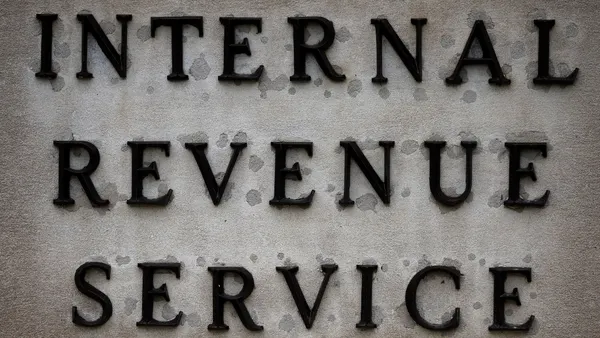Dive Brief:
-
Corporate CFOs are adept at detecting signs of fraud, but are less likely to voice these concerns externally if their company is under pressure to meet a financial target, a study published last month by the Journal of Business Ethics found. The study was based on input from 204 CFOs and controllers in Italy, but study authors say the findings are applicable across business cultures in other countries.
-
Auditors, investors and regulators should be prepared to identify red flags on their own, "rather than expecting management to raise the issue," Joe Brazel, accounting professor at North Carolina State University and co-author of the study, told NC State News Monday. "That could be challenging, since research suggests many of these stakeholders aren’t as skilled as financial managers at detecting fraud red flags."
-
The study, "Reporting Concerns About Earnings Quality: An Examination of Corporate Managers," was conducted in Italy and was co-authored by Lorenzo Lucianetti of the University of Chieti and Pescara and Tammie Schaefer of the University of Missouri-Kansas City.
Dive Insight:
The participants — CFOs and controllers — were split into four groups. NC State News explained, "One group was told that the company was under significant pressure to meet a financial target and was also given data that included inconsistencies that could be viewed as red flags, or indicators of potential fraud. One group was under pressure but received no red flags. One group received the red flags but was not under pressure to meet the target. And one group had no red flags and no pressure to meet a target."
The subjects were excellent at identifying the red flags, according to the NC State summary, and the presence of red flags increased the chances of participants reporting internally to their CEO about any wrongdoing. Participants who discovered red flags while not under financial pressure were more likely to share concerns with external parties, like their auditor, if the company failed to address them.
However, when the CFOs were under pressure to meet a certain financial target, they were less willing to raise concerns outside the company. Additionally, executives who had been with their company for longer were less likely to voice concerns.
In another finding, CFOs with backgrounds in accounting were much more likely to go public with their concerns than were CFOs from finance or banking backgrounds.
"CFOs with accounting backgrounds develop under a different set of norms, code of conduct, and need to look out for the public interest," Brazel told CFO Dive Monday. "Those are all in the forefront of your mind when you’re in the accounting profession."
"If you’re a CFO with an accounting background, and there’s been accounting fraud, the buck stops with you," Brazel explained. Whereas, CFOs with banking backgrounds can possibly push the fraud onto the controller.
Brazel said the most important finding was that when the pressure is racketed up, there is a "dramatic reduction" in executives reporting concerns externally, once everything has been exhausted.
"In the scenarios we presented, there was the possibility that reporting red flags to the external parties could result in a failure to meet a financial target. And that could lead to the company’s bankruptcy," Brazel told NC State News.
In light of the findings, Brazel recommends companies study their whistleblower systems and determine whether they offer support for whomever decides to report. He encourages asking: "Is it truly anonymous? Will there be backlash? Has there been in the past?"
"Whistleblowers could be thinking, 'in the short term, this will be a bad experience for me,' and back off," Brazel told CFO Dive. "This short-term concern over backlash within the company is far more than the long-term cost of fraud being detected, and their career being ruined by litigation issues. Companies need to attack the concerns executives have about the short-term costs of reporting. That’s the main dilemma: short-term costs winning out."
To that point, the whistleblower hotline and associated rewards available in the U.S., but not in Italy, could imply a different result, had the study been carried out stateside. "In Italy, [the hotline and rewards] would spur external reporting a little more, even in high-pressure settings," Brazel said. "There’s more reward for blowing the whistle externally in America than in Italy."












